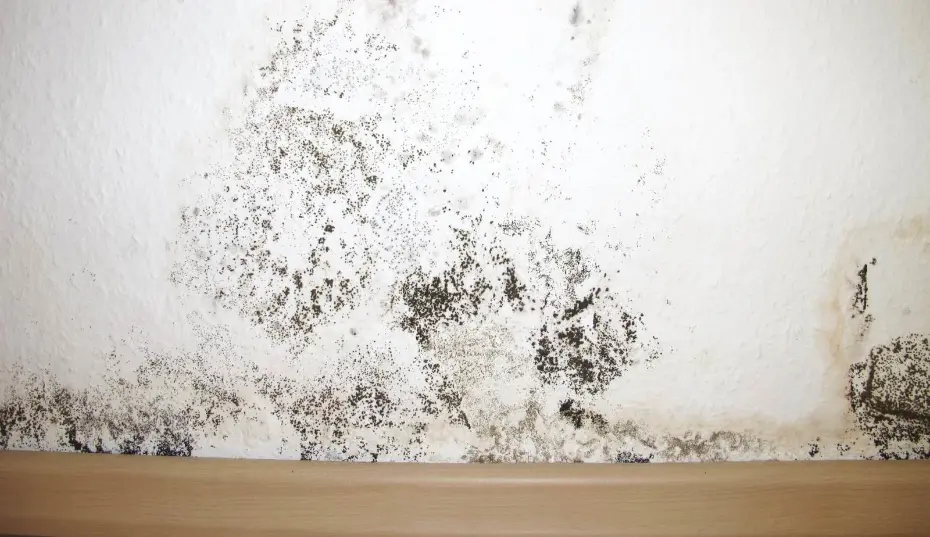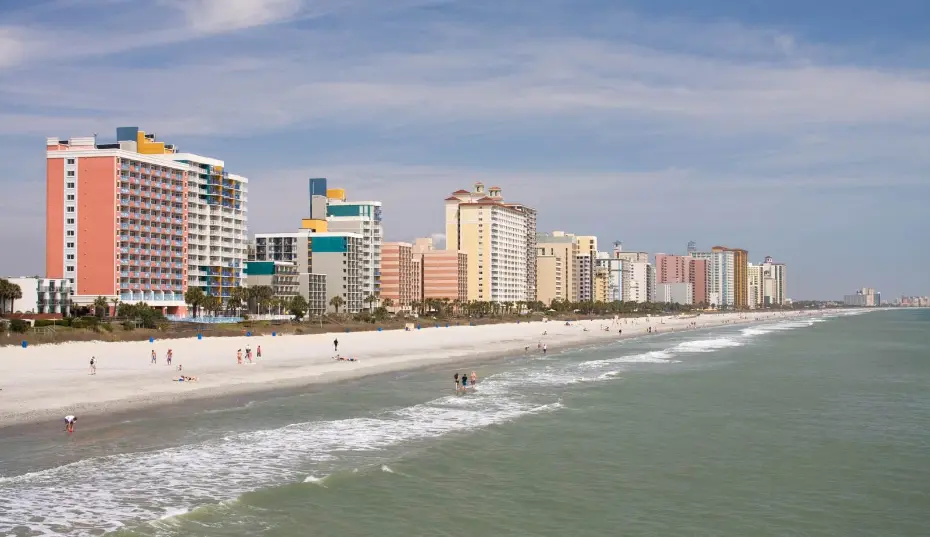Myrtle Beach's warm, humid climate fosters conditions that can lead to mold growth, posing significant health risks for residents, particularly those with allergies. For individuals sensitive to mold, exposure can trigger an array of allergic reactions, including respiratory issues and other discomforting symptoms. Understanding the relationship between mold and allergies is crucial for homeowners looking to maintain a safe and healthy living environment.
Mold not only thrives in damp conditions but also finds its way into homes, often unnoticed until health issues arise. With humidity levels frequently exceeding 70% during the summer months, the potential for mold proliferation in hidden spaces like attics and basements increases dramatically. Residents must be aware of this hidden danger and take proactive steps to mitigate mold growth.
Expert mold inspection and remediation services, such as those provided by Mastertech Environmental, are vital in combatting these issues. By addressing mold concerns swiftly and effectively, homeowners can protect not only their property but also the well-being of their families. Recognizing the link between mold and allergies empowers residents to take charge of their indoor air quality and overall health.
Understanding the Connection Between Mold and Allergies
Mold can significantly impact allergens in homes, particularly in regions with high humidity like Myrtle Beach. Understanding how mold triggers allergic reactions, its potential link to headaches, and the influence of Myrtle Beach's climate on allergy risks is essential for homeowners.
How Mold Triggers Allergic Reactions
Mold releases microscopic spores into the air, which are easily inhaled. This exposure can irritate the respiratory system, causing allergic reactions such as sneezing, nasal congestion, and itchy eyes.
People sensitive to mold are particularly at risk. The Centers for Disease Control and Prevention (CDC) states that mold exposure can exacerbate existing conditions like asthma.
The most common types of mold related to allergies include Aspergillus, Penicillium, and Cladosporium. Mold thrives in damp environments, which may lead to increased symptoms during humid months in Myrtle Beach.
Link Between Headaches and Mold Exposure
Certain individuals report headaches as a symptom associated with mold exposure. This can stem from several mechanisms, including sinus inflammation and allergic reactions.
When mold spores are inhaled, they can trigger an immune response that leads to sinus pressure. This pressure often results in tension headaches.
Additionally, some molds produce mycotoxins, which can contribute to cognitive dysfunction and headaches if inhaled over time. Understanding the signs of mold exposure can help individuals address headaches more effectively.
Myrtle Beach Climate’s Impact on Allergy Risks
Myrtle Beach has a humid subtropical climate, which creates a conducive environment for mold growth. High humidity levels can lead to mold proliferation indoors, especially during warmer months.
Common sources of indoor moisture include leaking pipes, improper ventilation, and excess humidity from cooking and showering. Homeowners may notice increased allergy symptoms as mold levels rise in these conditions.
To mitigate risks, residents can monitor humidity levels and ensure proper ventilation. Humidity levels should ideally be kept between 30-50% to help reduce mold growth and minimize allergic reactions.
Factors Driving Mold Growth in Myrtle Beach Homes
Myrtle Beach's unique climate and environmental conditions create an ideal setting for mold growth. Understanding the specific factors contributing to this issue is crucial for homeowners seeking to maintain healthy indoor environments.
Humidity and Seasonal Moisture Challenges
Myrtle Beach experiences high humidity levels, especially during the summer months. The combination of warm temperatures and moisture creates an environment where mold spores thrive. Rainy seasons can exacerbate moisture problems, leading to flooding and increased humidity indoors.
Homeowners often encounter challenges with condensation in attics and crawl spaces. This moisture accumulation serves as a breeding ground for mold. Regular monitoring and maintenance are essential to mitigate these seasonal moisture issues before they lead to significant mold problems.
Common Areas Vulnerable to Mold
Certain areas within Myrtle Beach homes are particularly susceptible to mold growth. These include bathrooms, kitchens, and basements.
- Bathrooms often suffer from poor ventilation and excess moisture from showers and baths.
- Kitchens can see mold around sinks, dishwashers, and under cabinets where water may leak.
- Basements, especially those that are unfinished, can trap moisture, contributing to mold proliferation.
Identifying these vulnerable areas allows homeowners to implement targeted prevention measures, reducing the likelihood of mold infestations.
Hidden Mold vs. Visible Mold
Mold can exist in two primary forms: hidden and visible. Visible mold is often found on surfaces in areas such as bathrooms and kitchens, making it easier to identify.
Hidden mold, on the other hand, can grow behind walls, under floors, or in attics. It may not be immediately apparent, but it can circulate spores through HVAC systems, potentially affecting air quality.
Homeowners should conduct regular inspections and consider professional mold assessments to uncover hidden growth. Early detection is key to preventing more extensive mold damage and health issues associated with mold exposure.
Recognizing Signs of Mold and Associated Health Symptoms
Mold in homes can lead to various health problems, particularly for individuals with allergies or respiratory conditions. Identifying the signs of mold and understanding their health implications is essential in maintaining a safe living environment.
Physical Symptoms of Mold Exposure
Individuals exposed to mold may experience a range of health symptoms. Common physical reactions include:
- Respiratory issues: sneezing, coughing, and wheezing are frequently reported by those sensitive to mold.
- Skin reactions: rashes, itching, or irritation can arise upon contact with mold spores.
- Headaches: persistent headaches may indicate mold exposure, often linked to indoor air quality.
More severe symptoms can manifest in individuals with existing respiratory conditions, such as asthma. They may face heightened difficulty in breathing, chest tightness, or increased asthma attacks. Those with compromised immune systems should be particularly vigilant, as their reactions may include more serious complications.
Detecting Mold-Related Allergies in the Home
Identifying mold-related allergies begins with awareness of its signs. Some techniques include:
- Skin prick testing: conducted by healthcare providers to identify specific mold allergies.
- Symptom diary: recording symptoms during certain activities or times can pinpoint mold triggers.
- Mold detection tools: using home test kits can help identify elevated mold spore levels.
Regular inspections of high-risk areas—such as basements, bathrooms, and kitchens—are critical. Mold spores thrive in damp, dark environments, making these places more susceptible. If symptoms improve when away from home, a deeper investigation into mold presence is warranted.
Musty Odors and Visual Indicators
One of the first clues that mold may be present is the detection of musty odors. Often described as earthy or stale, this smell can indicate hidden mold colonies. Homeowners should pay attention to any unusual or persistent odors in rooms.
Visual indicators are also essential for mold recognition. Look for:
- Discoloration: black, green, or white patches on walls or ceilings.
- Water stains: signs of recent or past leaks can indicate moisture conducive to mold growth.
- Peeling paint or wallpaper: bubbling or peeling layers may suggest trapped moisture behind surfaces.
Timely identification and remediation are crucial. Homeowners noticing these signs should consider professional mold assessment to ensure safe levels are maintained.
Mold Inspection and Detection Techniques
Detecting mold in homes is essential for maintaining air quality and preventing health issues. Professional mold inspection utilizes advanced techniques and tools to accurately assess the presence of mold. This section explores the importance of mold inspections and the technologies used for detection.
Importance of Professional Mold Inspection
Professional mold inspection is crucial for several reasons. Trained inspectors can identify hidden mold growth that homeowners may overlook. Mold often grows in areas like attics, basements, or behind walls, where visual inspections may not reveal issues.
Inspectors possess the expertise to trace the source of moisture, which is vital since mold thrives in damp environments. They can evaluate whether mold exposure has affected indoor air quality, which is essential for health, especially for residents with allergies.
Engaging a professional inspection service, such as Mastertech Environmental, ensures a thorough assessment. This minimizes the risk of health complications caused by mold, providing peace of mind to homeowners.
Advanced Tools and Technology for Detection
Modern mold detection employs a variety of advanced tools that enhance accuracy. Some of these include:
- Moisture Meters: Measure humidity levels in materials to identify areas prone to mold growth.
- Infrared Cameras: Detect temperature changes in surfaces, highlighting moisture pockets behind walls.
- Air Quality Testing Kits: Collect samples of mold spores in the air and analyze them in a lab.
These tools help professionals pinpoint not only the presence of mold but also its types and concentrations. Advanced detection techniques offer a comprehensive view of a home’s mold situation.
By utilizing these technologies, inspectors can recommend tailored remediation measures that target specific issues, ensuring effective resolution of mold problems.
Effective Mold Remediation and Removal Solutions
Effective solutions for mold remediation and removal are essential for safeguarding indoor air quality and preventing health issues. In Myrtle Beach, where humidity levels can foster mold growth, knowing the proper methods and professionals to address these concerns is crucial.
Process of Professional Mold Removal
The mold removal process typically begins with a comprehensive inspection. Professionals assess the extent of the contamination and identify moisture sources. They then establish containment to prevent spores from spreading during remediation.
Removal methods include:
- Physical Removal: Contaminated materials, such as drywall or insulation, are safely removed.
- Cleaning and Disinfection: Surfaces are treated with specialized solutions to kill remaining spores.
- Moisture Control: Fixing leaks or improving ventilation ensures a long-term solution.
Proper disposal of materials and thorough cleaning of the affected area are key components. A final inspection confirms that the space is free of residual mold.
Mastertech Environmental’s Approach
Mastertech Environmental employs a systematic approach to mold remediation. They start with an initial assessment to determine the type and extent of mold.
Their process includes:
- Containment: They use advanced techniques to isolate the area.
- Targeted Removal: Specific materials are removed based on damage assessment.
- Detailed Cleaning: HEPA vacuuming and antimicrobial treatments are employed to clean surfaces.
After remediation, they conduct follow-up inspections and moisture control solutions to prevent future issues. Their focus on protecting the home and addressing root causes sets them apart.
Benefits of Choosing Certified Mold Specialists
Engaging certified mold specialists offers multiple advantages. They possess the necessary training and experience to manage mold effectively.
Key benefits include:
- Comprehensive Solutions: Specialists address both removal and prevention strategies.
- Health Safety: Professional methods minimize exposure and protect occupants.
- Insurance Assistance: Certified services often work with insurance companies to streamline claims.
Choosing professionals like Mastertech Environmental ensures adherence to industry standards, providing peace of mind and thorough remediation results that homeowners can trust.
Preventing Future Mold Growth and Allergies
To effectively reduce the risk of mold growth and associated allergies in Myrtle Beach homes, addressing moisture issues is crucial. Alongside proactive home maintenance, utilizing expert services enhances a property’s resilience against mold.
Managing Moisture Issues
Moisture control is the foundation of preventing mold growth. Homeowners should aim to keep indoor humidity levels between 30-50%. This can be achieved by:
- Using Dehumidifiers: Place dehumidifiers in damp areas, such as basements and bathrooms, to manage humidity.
- Repairing Leaks: Promptly address leaks from plumbing, roofs, or walls to prevent water accumulation.
- Ventilation: Utilize exhaust fans in kitchens and bathrooms to improve airflow. Open windows when weather permits to facilitate fresh air circulation.
Regularly inspecting and maintaining gutters can also mitigate the risk of water pooling near the foundation, further controlling moisture ingress.
Guidance on Mold-Free Home Maintenance
Routine maintenance is vital for mold prevention. Homeowners should implement a checklist of tasks to maintain a mold-free environment:
- Regular Cleaning: Frequently clean areas prone to moisture, like bathrooms and kitchens, using mold-specific cleaning solutions.
- Inspect and Clean HVAC Systems: Ensure HVAC systems are free from mold. Changing filters regularly and scheduling professional cleanings help maintain optimal air quality.
- Monitor for Dampness: Utilize moisture meters to detect hidden dampness. Promptly address any signs of water damage to prevent mold spores from setting in.
A consistent home maintenance schedule diminishes moisture accumulation and keeps living spaces healthier and safer.
Mastertech Environmental’s Mold-Free Warranty
Mastertech Environmental provides peace of mind through its mold-free warranty. This warranty reflects their commitment to effective mold remediation and prevention. Key features include:
- Comprehensive Inspections: They conduct thorough assessments to identify potential moisture issues that could lead to mold growth.
- Guaranteed Services: Once remediation is completed, their warranty ensures follow-up support, emphasizing long-term mold-free environments.
- Expert Recommendations: They offer tailored advice on home maintenance practices to further reduce moisture and mold risks.
This proactive warranty supports homeowners in safeguarding their properties against future mold-related issues, enhancing overall indoor air quality.
Why Myrtle Beach Homeowners Trust Mastertech Environmental
Homeowners in Myrtle Beach turn to Mastertech Environmental for reliable mold inspection and remediation services. The company emphasizes customer satisfaction, quality service, and strong community ties, ensuring residents feel supported during challenging situations.
Customer Testimonials and Community Impact
Many homeowners share positive experiences with Mastertech Environmental. Reviews highlight their professionalism, responsiveness, and thoroughness. Customers appreciate the team's ability to address concerns regarding mold and allergens effectively.
The company’s commitment extends beyond individual homes; Mastertech actively engages with the local community. They offer educational resources on the health impacts of mold, helping residents understand prevention and maintenance. This outreach builds trust and establishes Mastertech as a reliable partner in promoting healthier living environments.
Guarantees and Service Standards
Mastertech Environmental sets high standards for their services. They ensure all technicians are licensed and certified, providing confidence in remediation efforts. Clients benefit from a mold-free warranty, which guarantees satisfaction with the services rendered.
The company's meticulous hiring process ensures that only qualified individuals are employed. Mastertech utilizes advanced equipment and adheres to industry regulations, offering peace of mind that jobs will be done right the first time. This commitment to quality reinforces their reputation as a trusted provider for Myrtle Beach homeowners.
Frequently Asked Questions
Mold exposure can lead to various symptoms and health concerns, especially in environments prone to high humidity. Homeowners should be aware of identification methods, remediation processes, and prevention strategies specific to coastal regions like Myrtle Beach.
Can mold in Myrtle Beach homes really trigger allergies?
Yes. Mold growth inside homes in humid areas like Myrtle Beach can release spores into the air. When inhaled, these spores often cause allergy-like symptoms such as sneezing, watery eyes, coughing, and congestion—especially in people with asthma or seasonal allergies.
What are the most common allergy symptoms caused by mold exposure?
Mold allergies can mimic seasonal allergies. Homeowners in Myrtle Beach often report symptoms like runny nose, itchy throat, skin irritation, sinus pressure, headaches, and worsened asthma attacks. Persistent symptoms indoors are a red flag for hidden mold.
Why is mold such a big problem in Myrtle Beach, SC?
The warm, humid climate of Myrtle Beach creates the perfect conditions for mold growth. High humidity, coastal storms, and poor ventilation can trap moisture in homes, leading to mold colonies that can impact indoor air quality and trigger allergies year-round.
How can I tell if mold is causing my allergy problems?
If your allergy symptoms get worse at home but improve when you spend time outdoors or away from the house, mold could be the culprit. Visible spots, musty odors, or recent water damage are also strong indicators that professional mold testing or inspection is needed.
What’s the best way to reduce mold allergies in my Myrtle Beach home?
The most effective solution is professional mold remediation combined with humidity control. Keeping indoor humidity below 50%, fixing leaks quickly, and ensuring proper ventilation are key steps. For persistent issues, scheduling a professional mold inspection in Myrtle Beach is the safest way to protect your family’s health.


